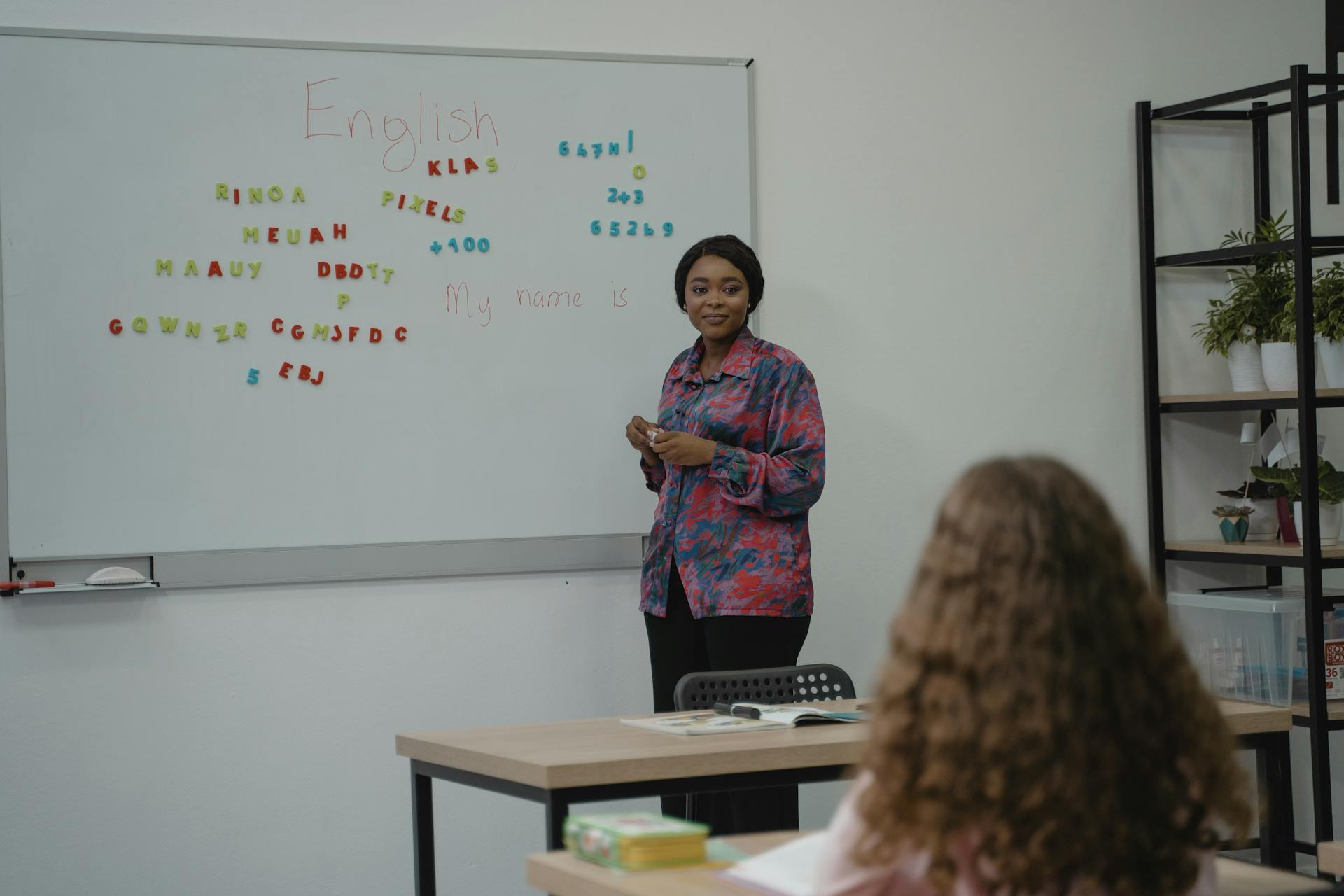
Are you struggling to reach a conversational level in a foreign language? It can be frustrating when you feel like you're not making progress despite hours of studying and practicing. But fear not, because with the right approach and dedication, you can achieve fluency in just 90 days.
The key to reaching a conversational level in a language is to focus on communication rather than perfection. Many language learners get caught up in worrying about grammar rules and vocabulary words instead of actually using the language in real-life situations. By prioritizing speaking and listening skills, you'll be able to have meaningful conversations with native speakers and gain confidence in your abilities.
In this 90-day plan, we'll provide you with practical tips and resources to help you improve your speaking and listening skills quickly. Whether you're preparing for a trip abroad or want to expand your career opportunities, mastering a new language can open up countless doors. So let's dive into how you can achieve a conversational level in a foreign language!
Here's an interesting read: Language Learning Plateaus
Is it possible to reach a conversational level in a language in as little as 3 months? Experts show it can be done!

Reaching a conversational level in a language is the goal of many language learners. However, some might think that it takes years to achieve fluency. The reality is that with fast-track ways, you can reach a conversational level in as little as 3 months! This is possible without having to rely on complicated textbooks or attending an education abroad program.
The Common European Framework provides a clear definition of what it means to reach a B2 level, also known as basic fluency. This means that you can interpret fluency and express yourself confidently in everyday situations. Reaching this level is achievable within 3 months with dedication and commitment. It's essential to remember that learning a language doesn't start with memorizing grammar rules and vocabulary lists; instead, it starts by immersing yourself in the language daily.
It's easy to get a false impression of how difficult it is to learn a new language, especially when we compare ourselves to native speakers or those who have reached world B2 level. However, they all started from scratch like everyone else! By using fast-track ways and committing to practicing the language every day for three months, reaching B2 level becomes entirely possible, helping you achieve your goal of speaking another language with ease!
Suggestion: English Language Subject Verb Agreement
Experience the True Wonders Beyond the 90-Day Mark
So, you've made it past the 90-day challenge and are ready to take on the world of language learning. Congratulations! You have now built a strong foundation for yourself that will help you navigate through the language set with ease. However, don't get too comfortable just yet because there's still so much more to discover.
Dedicating 90 days to any language is a hard work, but it pays off in many ways. You have opened up opportunities connections with people from different cultures and backgrounds; your confidence in speaking has increased, and you're making fewer mistakes than before. Now it's time to take things up a notch and experience the magic world step beyond day 90.
The true wonders of language learning lie beyond day 90. This is where you start recognizing words without even thinking about them; it's where you can watch movies or tv shows in that language without subtitles, or maybe even understand jokes and puns. The feeling of accomplishment is indescribable, and suddenly the language becomes more than just an academic exercise but a whole new world of discovery. Keep pushing forward because there's no limit to what you can achieve when it comes to learning a new language!
You might enjoy: Difficulties in Learning English
1. Select your classes
Selecting the right classes is crucial when it comes to improving your conversational level in a language. Whether you're a beginner or an advanced learner, finding lessons that are tailored to your needs will help you make progress faster and more effectively.
When choosing your classes, consider factors such as the teacher's experience, the curriculum, the teaching style, and the overall learning environment. Look for classes that focus on practical communication skills, offer plenty of opportunities for conversation practice, and provide feedback and corrections from a native speaker. With the right classes, you'll be able to boost your confidence and fluency in no time!
Become Fluent in Any Language: Tips and Insights!

Expert polyglots show that becoming fluent in any language is possible, even in just 3 months. Achieving conversational level is the main focus of the 3 months challenge, according to Benny Lewis. Low confidence levels can be a great hindrance for language learners, but with the right mindset and determination, anyone can succeed.
The 3 months challenge has helped many language learners get to conversational level in a short amount of time. By dedicating at least 15 minutes each day to practicing speaking with native speakers, learners have been able to hack language learning and make progress faster than ever before. Travelling, making friends abroad or simply being interested in a different culture are all great motivators for people who want to learn a new language fast.
Benny's words of advice ring true: perfect grammar and memorizing the entire dictionary won't help you much if you can't hold a complete conversation with a native speaker. The key is to practice having real conversations as much as possible, even if it means making mistakes along the way. With the help of expert polyglots and the 3 months challenge language learners can become confident speakers within just 90 days.
Here's an interesting read: English Level Test
How to Achieve Conversational Fluency in Just 90 Days
If you're looking to improve your conversational level in a language quickly, look no further than the 90-day challenge proposed by famous polyglot Olly Richards. The key is to focus on core parts of the language, namely comprehensible input and output. This means listening and reading materials that are slightly above your current level, and then practicing speaking with native speakers in hour-long conversations. With dedication and consistency, you can achieve conversational fluency in just 90 days!
1. Focus on comprehensible input (0-30 days)
When starting to learn a new language, people often don't realize the importance of focusing on comprehensible input. This means consuming language input that is understandable to you, whether it be from reading materials, podcasts, or other sources. It's important to choose content that is at your level and contains familiar words and sentence structures. However, it's also beneficial to expose yourself to some unfamiliar vocabulary and grammar structures, allowing you to get a feel for the language naturally.
One great resource for comprehensible input is Omniglot.com, which offers a wide variety of input resources in many different languages. Gabriel Wyner, a well-known polyglot elaborates on this concept in his TEDx talk where he explains how he learns multiple languages by immersing himself in actual sound and exciting real-world situations. By placing himself in real-world settings with translated words and phrases around him Gabriel begins learning the language through conversation creating real memories which helps him remember the language easier.
During the first 30 days of your language learning experience, it's important to focus on simple dialogues and real conversations. Don't worry about making mistakes - just begin talking! By creating real memories through conversation you will be able to better retain what you have learned and gain confidence in your ability to speak the language. Remember, focusing on comprehensible input will help you progress faster than trying to memorize rules and vocabulary without context.
Suggestion: Informal English Conversation
2. Speak… a lot! (31-60 days)
One of the great ways to improve your conversational level in a foreign language is to start speaking! But sometimes, it can feel uncomfortable to step out of your comfort zone and start talking. Olly Richards started speaking as much as possible for 31-60 days to get himself firing on all cylinders. He found that getting to an optimum arousal level was a good thing for language learning.
Don't put too much pressure on yourself to be perfect. It's okay to make mistakes when you're practicing. Once you're feeling ready, there are many ways to start speaking. Some options include 1-on-1 tutoring or finding online tutors with tailored learning plans that can help you reach your goals quickly. Language exchanges are another approach; check out our step-by-step guide on how to find language partners and practice speaking with people who are also interested in improving their conversational level. And if you feel you've reached conversational level, consider traveling to immerse yourself in the language!
3. Turn up these methods up to the max (61-90 days)
In the final month of your language learning journey, it's time to turn up these methods up to the max. That means putting your phone settings in the target language, start fully immersing yourself in media types like TV shows and movies, and overdrive talk with your language partner speaking in-depth about various topics. These are pretty extreme ways to reach conversational level in a language, but trust me, it's worth it.
This pretty demanding month will be the time you'll experience pretty intense progress reading, speaking, and writing in your target language. You can also seek guidance from a language expert like John Fotheringham for an in-depth interview on how to maximize your learning techniques. With dedication and focus, you'll be able to achieve conversational fluency before you know it!
Frequently Asked Questions
How many words do I need to learn a foreign language?
There is no set number of words needed to learn a foreign language as it depends on various factors such as the complexity of the language and your personal learning style. However, experts suggest that having a vocabulary of 2,000-3,000 words can provide fluency in most languages.
What is the upper level language language skill?
The upper level language skill refers to the ability to communicate proficiently in a language beyond basic conversational level. It is characterized by a higher understanding of grammar rules, advanced vocabulary, and the ability to express complex ideas with clarity and precision.
How can I learn a foreign language quickly?
The best way to learn a foreign language quickly is through immersive experiences like traveling, speaking with native speakers, and watching movies in that language. It's also important to practice regularly and use language-learning apps and resources.
How to reach a conversational level?
To reach a conversational level, practice regularly with native speakers or language partners, immerse yourself in the language through media and culture, and focus on building your vocabulary and grammar skills. Consistency and persistence are key to success.
Featured Images: pexels.com


